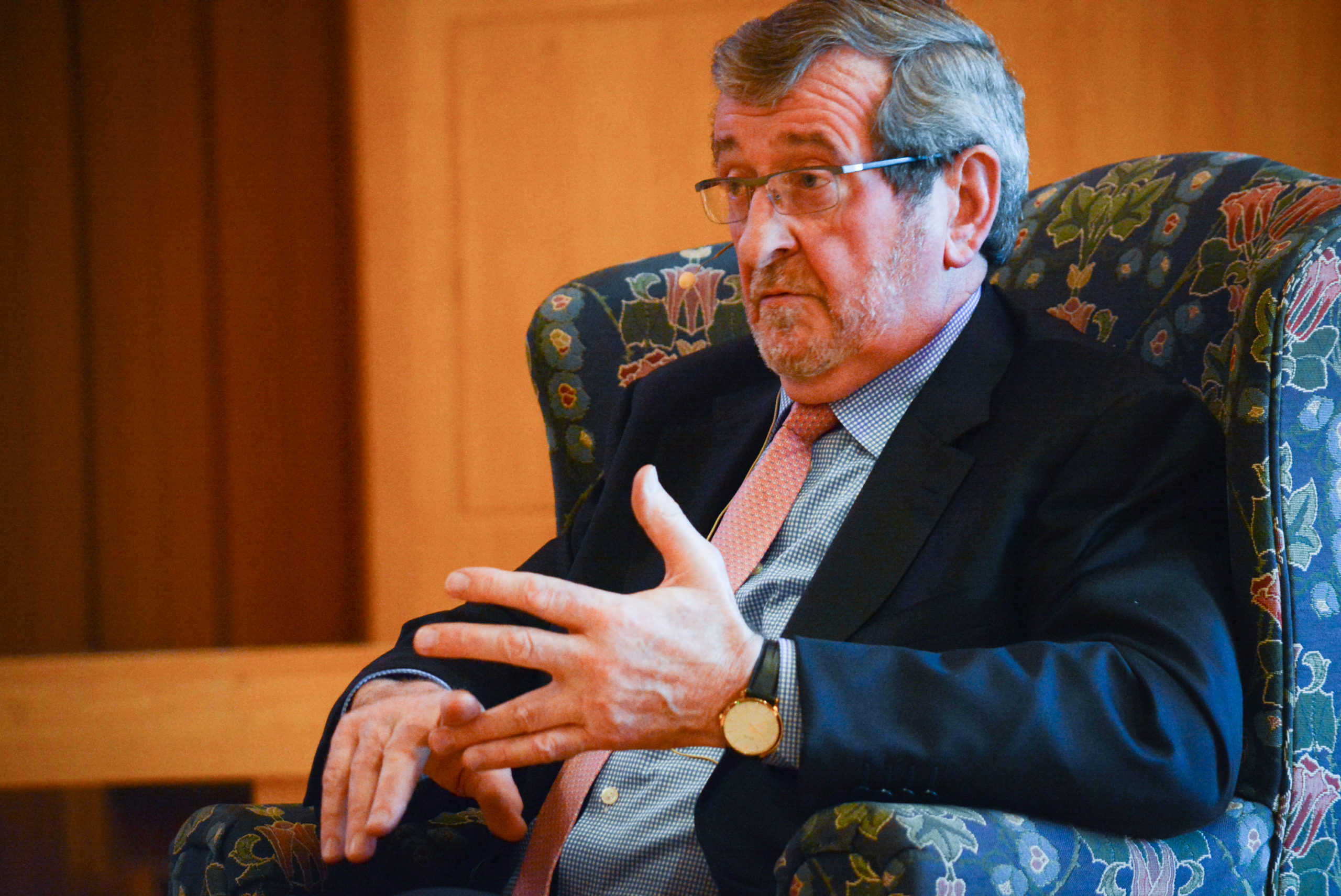Northwell Health CEO and President Michael Dowling struck a largely optimistic note on the state of health care in the United States on Thursday night, while acknowledging some shortcomings and offering a handful of solutions.
Dowling’s remarks came at a crowded forum at the Unitarian Universalist Congregation at Shelter Rock in Manhasset, which was moderated by Blank Slate Media publisher and editor Steve Blank.
The comments came at a time when, as Blank noted, the United States ranks lowest among developed countries in health care, associated costs are projected to rise to 19.7% of GDP and a lawsuit from Republican attorneys general threatens the Affordable Care Act.
Dowling said that when looking at the state of health care, one should look over a longer period and consider the vast improvements in health overall. People are living decades longer, more people survive strokes, cancer and heart disease, and health care was much cheaper in the 1960s and ’70s only because of the lack of options available then.
“You can argue that we spend a little bit too much money than we should and I would agree with that,” Dowling said, “but the progress of health care over the last 30, 40 years and the things we can do today that we couldn’t even imagine doing 30 years ago today is extraordinary.”
Dowling also said that one needs to be “very careful” about international comparisons. Other countries may spend less money and everyone may be insured, but access is lower, Dowling said, and people are “tolerating” issues that would be unimaginable in the United States.
He also said that some comparisons use mortality rates that include sudden deaths from physical injuries, which are unrelated to the health care system.
“I could tell you from my experience in England, in mainland Europe, in Ireland, despite some good things happening, I will take the system in the United States over any other,” Dowling said. “And I think we should be proud of that while acknowledging the things that need to get fixed.”
Dowling said that there is no perfect model when it comes to health care. But the current fee for service model has shortcomings and should be moved away from, he said.
Dowling also said that insurance companies refusing to cover costs is a major issue. Northwell Health alone has a staff of 4,000 people that try to get payments from insurance companies, which he estimated deny around one-third of payments for procedures.
“That is an inefficiency and it has to be taken care of,” Dowling said.
Dowling also said that the health care system gets blamed for issues, while certain companies are promoting a “culture of illness.”
At the same time, though, Dowling cast doubt on proposals for government-run and single payer health care, citing Department of Veteran Affairs hospitals, deficits at Nassau University Medical Center and some issues with European health care systems.
Instead, Dowling said there has to be a mix of public and private.
Dowling also said that health care is a complicated issue, but that leaders are not sitting down together “to figure out how to fix this.” He also blasted Republican-led efforts to repeal the Affordable Care Act without offering a viable replacement or possible fixes, as it would leave 20 million more people without health insurance.
“You don’t knock down the whole house to fix the kitchen,” Dowling said.
Asked for his three wishes for a new administration, Dowling said the president should declare that all children under 18 should have access, as it’s “hard to argue against children,” scale back certain regulations and come up with step-by-step fixes to fix issues with the health care system.
“Big policy changes are incremental,” Dowling said.
As medical treatment is but a part of health care, Dowling said one of the most important things people can do is make positive lifestyle changes.
He also pointed out that in terms of overall health, the health care system makes up only 10 percent of wellbeing. The biggest factors are individual choices at 40 percent, genetics at 30 percent and social circumstances at 20 percent.
As for the cost of health care, Dowling said, “You are never reducing the cost of health care in the United States.”
“The demographics are absolutely running against you,” Dowling said, noting that thousands of people are turning 65 every year and health care costs tend to sharply rise with age.
Dowling also took aim at drug companies, calling them and the National Rifle Association the most powerful lobbying groups in America, and said the government has to take a “very aggressive stand” against companies gouging prices without eliminating the possibility of innovation.
Drug prices in general make up 12 to 15% of health costs, Dowling said.



